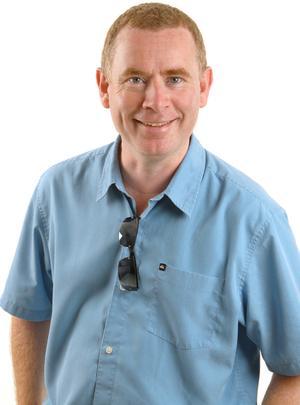MARVEL Distinguished Lecture — Kieron Burke
The 14th NCCR MARVEL Distinguished Lecture will be given by
Prof. Kieron Burke (University of California, Irvine) on Tuesday February 20, 2018, 16.15 pm, at EPFL, room MXF1.
If you would like to meet Prof. Burke, please contact Nathalie Jongen.

Abstract — This lecture is designed to be accessible to a wide variety of backgrounds.
In the first part, I will briefly review density functional theory and why it is important to many branches of modern physical science. I will also review machine learning and its recent applications to molecules and materials.
In the second half, I will show how, in collaboration with computer scientists at TU Berlin, we have used a specific type of machine-learning, called kernel ridge regression, to find more accurate and powerful approximate density functionals than any made by humans.
For more background, see here.
About the speaker — Kieron Burke is a professor in both the chemistry and physics departments at UC Irvine. His research focuses on developing a theory of quantum mechanics called density functional theory.
Density functional theory is a way of solving the equations of quantum mechanics for the electrons in any substance. Because DFT equations can be solved relatively quickly on modern computers, DFT has become a very popular tool in many branches of science, especially chemistry and materials science. Last year, at least 30,000 scientific papers used DFT. For example, hydrogen sulphide was predicted by DFT calculations to have a high superconducting temperature under pressure, and a year later, it was tested and became the world-record holder, at 203K.
Professor Burke works on developing all aspects of DFT: formalism, extensions to new areas, new approximations, and simplifications. His work is heavily used in materials science, chemistry, matter under extreme conditions (such as planetary interiors or fusion reactors), magnetic materials, molecular electronics, and so on.
Kieron Burke is a Chancellor's Professor of UCI, and a fellow of the American Physical Society. He is known around the world for his many educational and outreach activities. Most recently, he was honored to participate in the Baker symposium at Cornell in 2016, he was named the 2017 Bourke Lecturer by the British Royal Society of Chemistry, and elected a member of the International Academy of Quantum Molecular Scientists. According to google scholar, his research papers are now cited more than 12,000 times each year.
Low-volume newsletters, targeted to the scientific and industrial communities.
Subscribe to our newsletter